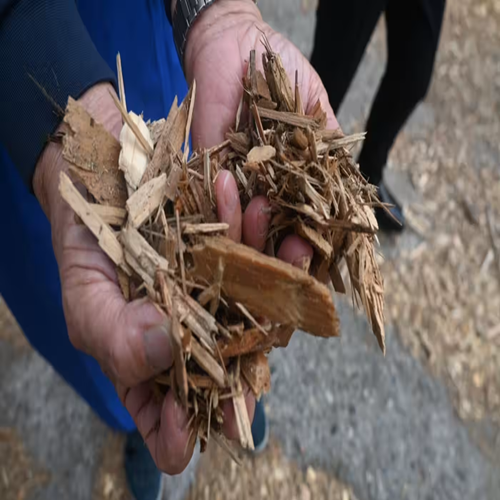Japan firm to turn construction waste into green jet fuel material

TOKYO — Japanese cardboard maker Rengo will start producing a raw material for sustainable aviation fuels (SAF), using construction waste in 2027, Nikkei has learned.
Rengo plans to invest approximately 20 billion yen ($133 million) to install equipment to produce ethanol, which will be processed for SAF. This move comes as Japan attempts to accelerate its effort to make the country’s aviation industry greener.
SAF is considered to emit 70-90% less carbon dioxide over the fuel’s life cycle — including collecting feedstocks, refining and burning — than standard jet fuel. Japan’s Ministry of Land, Infrastructure, Transport and Tourism envisions SAF being mixed with regular aviation fuel, and plans to increase the ratio of SAF use to 10% of aviation fuel used by domestic airlines by 2030. But Japan lags behind Europe and the U.S. in the development of supply chains for SAF.
So far, ethanol derived from corn and other plants is considered a promising raw material, but there are concerns that a focus on this type of ethanol could affect the food supply of Japan, which is reliant on imports of agricultural products. Waste cooking oil is another common feedstock, but there are challenges in stable procurement as it is difficult to establish a collection network from restaurants.
Rengo will operate the business through its subsidiary Taiko Paper Mfg., which manufactures packaging papers and disposes of industrial waste. Rengo and Taiko Paper will install facilities for saccharification, fermentation and distillation necessary to produce ethanol at Taiko Paper’s main plant. They will produce 20,000 kiloliters per year of ethanol derived from construction waste from 2027 and sell it to oil wholesalers and other companies that produce SAF.
Rengo has decided to commercialize this business as the company expects that the new business could expand the applications for the waste wood and industrial waste recovery business it has been involved in. The production cost of ethanol derived from construction waste is expected to be higher than that of plant-derived ethanol, but if the supply volume increases in the future, Rengo’s competitiveness will be enhanced.
Rengo’s production volume will be equivalent to around 1% of SAF’s domestic demand as of 2030. If construction waste is added to the SAF feedstock, it will contribute to the stability of the procurement network.
Paper companies such as Oji Holdings and Nippon Paper Industries are moving forward with plans to produce wood-derived bioethanol as an SAF feedstock. Initiatives like Rengo’s to produce bioethanol derived from construction waste wood are uncommon. If SAF can be produced from construction waste, it will not only lead to more effective use of resources, but also to the diversification of SAF feedstocks.
EU lawmakers have approved a requirement that SAF account for 85% of all aviation fuels at airports within the bloc by 2050. The U.S. and Europe are leading the way in commercialization, with Finland’s Neste moving to build a large-scale SAF production plant and oil majors in the U.S. and Europe considering production.
There is an urgent need to establish a stable procurement network for SAF from economic security perspectives as aircraft not using a certain amount of SAF may not be able to serve foreign airports in the future.
Source Link: https://asia.nikkei.com/Spotlight/Environment/Japan-firm-to-turn-construction-waste-into-green-jet-fuel-material

















